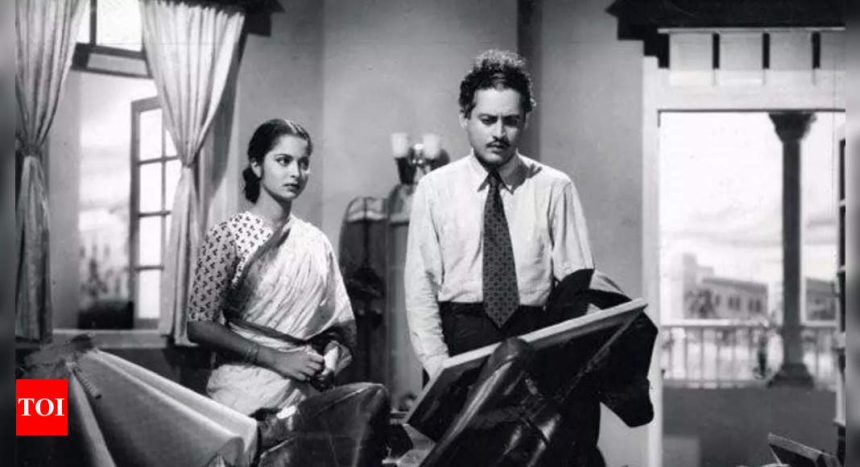Veteran filmmaker Uday Shankar Pani, who is known for his deep connections to Indian cinema’s golden era, spoke exclusively to ETimes, sharing his thoughts on one of the most significant figures in the history of Bollywood – Guru Dutt. Pani, who had the privilege of working with Guru Dutt’s son, Arun, and was deeply involved in the filmmaking process of the time, recounted some lesser-known stories about the legendary filmmaker.
One of the most poignant aspects Pani highlighted was Guru Dutt’s struggle with failure. Despite creating two ambitious and iconic films, Pyaasa and Kaagaz Ke Phool, both of which initially faced commercial setbacks, Dutt’s passion for cinema never wavered. However, these failures left him financially strained and emotionally shaken. Pani recalled an incident that illustrated the filmmaker’s dignity in the face of adversity.
“After the disappointment of Kaagaz Ke Phool, Guru Dutt was under immense financial pressure,” Pani shared. “I remember one evening at his Pali Hill flat. Guru Dutt and Geeta Dutt were having a traditional dinner on the floor when a group of workers showed up, demanding payment for services rendered. The workers were insistent, and their arrival at that hour made the situation more tense.”
What followed was a moment of dignity and grace from the legendary filmmaker. “Guru Dutt, without missing a beat, asked Geeta Dutt to pack up her jewelry, saying, ‘Take this gold as payment for now, and come to the office tomorrow for the balance.’ The workers, surprised by his gesture, refused to accept the gold, saying they would resolve the matter the next day,” Pani continued. “It was a remarkable moment that left a lasting impression on everyone present.”
Pani went on to explain how the pressures of failure took a toll on Dutt’s personality, especially after Kaagaz Ke Phool’s disastrous release. “There was a noticeable change in his behavior. He became very short-tempered, and we were all a little scared of him. The failure seemed to have affected him deeply,” Pani recalled. “But despite these challenges, he was a master of his craft, and his next film, Chaudhvin Ka Chand, went on to become a huge success, both commercially and critically.”
Reflecting on his experiences working alongside Dutt and his team, Pani mentioned how Dutt’s brilliance in filmmaking was evident, even during difficult times. “Guru Dutt’s legacy as a ‘guru’ of celluloid was cemented through his sheer dedication, no matter what he faced outside of filmmaking.”
He also touched upon the tragic day of Guru Dutt’s death, acknowledging how the circumstances surrounding it have remained a subject of much speculation and discussion. However, Pani was careful not to delve into the details. “There are countless incidents related to him. For instance, the day of his death is still a matter of discussion. But for now, I wanted to recount these incidents from the post-Kaagaz Ke Phool period,” he concluded.












